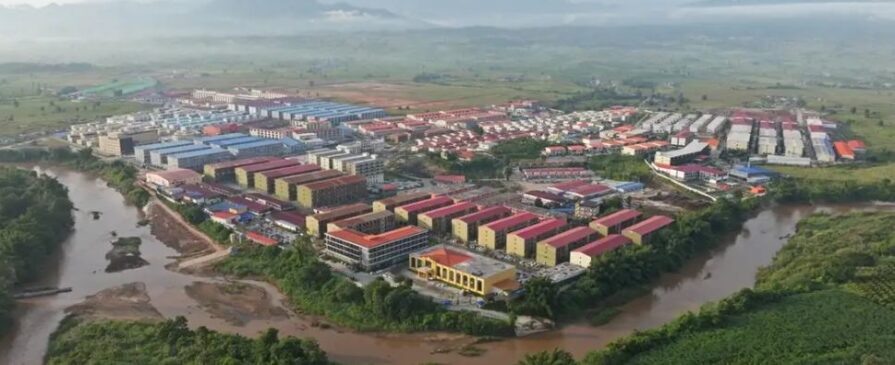The February 8 – 15 edition of “The Economist” magazine ran a leader and briefing about the international scamming industry and how it works. The investigation, called “Scam Inc” was carried out by Sue-Lin Wong, the Economist’s SE Asia correspondent.
Eight podcasts supplemented the articles, three of which are freely available on many podcast platforms including Spotify and YouTube. The remainder require a subscription to the Economist or its podcast service.
Scam Inc 1: Pigs in a barrel: A small town in Kansas is left reeling after one of its best and brightest gets sucked in. https://youtu.be/vUg-cLVhv-4?si=DI7zexTIek8vtsEc
Scam Inc 2. Who are the scammers? They aren’t who you think they are.
https://youtu.be/oNYxR9L59x4?si=Kvc3Z2Xl7JI37s6F
Scam Inc 3. How do you run a scam operation? Perks, recruitment, outsourcing and a monthly landscaping budget—this is Scam Inc.
https://youtu.be/OHNOwtCmMdw?si=i88FaWRgHGyg0DGD
Here’s a summary of some of the main points of the investigation with links to relevant online articles.
The Shan Haynes case
The briefing first described the Shan Haynes case, how the CEO of a small rural bank in Kansas, US was scammed to such an extent that the bank failed. This article gives a detailed description of what happened, though Haynes cannot explain why he did it. https://www.bankdirector.com/article/magazine-exclusive-victim-or-perpetrator
This case is also described in the first podcast. Haynes is currently serving a 25-year sentence for embezzling $47.1 million, most of which has been taken by the scammers.
Pig Butchering
He fell for a “Pig-butchering” scam. It works like this: Scammers identify a vulnerable target “pig” on social media; someone who appears to be lacking a certain something in their lives. Then they fatten them by introducing them to a plausible fake identity (e.g. financial advisor, mentor, love interest), creating an emotional connection. The target pig’s trust is nurtured over several months. They “bleed” the pig a bit – encouraging small investments in a fake cryptocurrency exchange – then manipulate the target to invest more and more. Finally, they go in for the kill, absconding with the money. https://en.wikipedia.org/wiki/Pig_butchering_scam
How significant are online scams?
It’s difficult to estimate because most people are too ashamed to admit they were scammed. It is estimated that around one in 100 falls victim in the US annually, and the amount of money scammed probably amounts to $50 billion a year Globally we are looking at around 500 $billion. This is on a par with the illegal drug trade.
Who is doing the butchering?
At the “customer service” level, the work is done by thousands of well-educated people, often university graduates from poor countries working as teams in elaborate Fraud factories also known as Scam compounds. Some workers have been tricked into accepting fictional customer service or marketing jobs in Thailand. Upon arrival, they are trafficked over the border to Myanmar and effectively imprisoned. Others work there because they are in debt at home or go by choice – it can be lucrative employment.
What do they do?
The workers are given detailed manuals on how to dupe victims: Be friendly, sound concerned about the “customer”, and say good morning and good night. Learn about them and discover what emotional vulnerability they have that you can exploit. The UN estimates that in 2023 at least 220,000 people were being forced to work as scammers in Myanmar and Cambodia. People from over 70 countries have been trafficked to fraud factories in South-East Asia.
Productivity at work (successful scams) leads to promotion. On the other hand, beating or even death awaits you if you are not productive. These days, bosses prefer voluntary workers because they cause less trouble. Also, people with programming, analytical and AI skills are sought after because access to the huge amount of data on the Internet means they can create a scam “just for you”!
How are the Scam Compounds organised?
They are run like business parks housing the enterprises of different entrepreneurs. The place is governed by rules set down by the owners so that competitors don’t fight. Structurally, they seem to follow the model of KK Park in Myanmar. This is a huge residential complex like a modern town with hotels, restaurants, shops and facilities for the bosses (who seem to be fond of booze, women and karaoke) as well as buildings for the scamming computer offices, dormitories for the workers and torture chambers. https://en.wikipedia.org/wiki/KK_Park

https://www.dw.com/en/how-chinese-mafia-are-running-a-scam-factory-in-myanmar/a-68113480
Recently, the Thai, Myanmar and Chinese authorities have shut down some Scam factories in Myanmar, releasing and repatriating thousands of workers. However, the Chinese bosses are moving people to areas further south and building new facilities. https://www.dw.com/en/can-myanmars-scam-centers-be-shut-down-for-good/a-71813141
Support services and smaller enterprises
Some scamming businesses are quite small. They can be run from hotels where the scammers rent a few floors, put up metal gates and hire armed guards while the hotel owners are paid to look the other way. Others may operate out of offices or apartments. You don’t need many resources to get started and returns are high.
Also, various aspects of the businesses are outsourced: e.g. people trafficking, fake documents, fake SIM cards, creating profiles, getting images of the “friends,” creating deepfakes, and laundering the proceeds via crypto wallets and “mule” accounts. Independent entrepreneurs can provide all these services for a fee.
Do you want to set up a scamming enterprise? Visit – Huione Guarantee. This was a Chinese-language online marketplace established in 2021, ostensibly for trading property and cars. It handles billions of dollars a year in business and is owned by a Cambodian conglomerate called the Huione Group. It also sells stuff useful for scammers: web domains for new websites, AI face-changing software for video calls and torture tools like electric batons. (It changed its name to Haowang Guarantee when this became known) https://www.wired.com/story/the-largest-illicit-online-marketplace-ever-is-growing-at-an-alarming-rate
Who is behind these scam operations?
Initially, it was run by Chinese criminal networks, but the industry is now becoming international.
How did this develop?
The Chinese secret societies known as Triads were formed 200 years ago and eventually morphed into the Chinese mafia. Unlike the Italian Mafia, you can’t take down the organisation by arresting “the boss” because it’s a network rather than a hierarchy. Gambling has been illegal in China since 1949 (even for Chinese citizens abroad) but the Chinese love gambling! Rich Chinese used to take a junket to gamble in Macao. Winnings were laundered through an international network of casinos and grew into a very profitable money laundering business which helped to fund a new enterprise: Pig butchering. China was an ideal environment for this business because of the early adoption of mobile money transfer apps such as WeChat and Alipay. Thus the initial targets of Pig butchering were Chinese, and the scammers honed their scamming skills in China.
Expanding overseas
Premier Xi Jinping has made things difficult by cracking down on corruption and Pig-butchering. Fraud is battled through propaganda in TV, films and songs and there are stiff penalties, including death, for the perpetrators. The anti-fraud film “No More Bets” was a box office hit in China. https://www.rottentomatoes.com/m/gu_zhu_yi_zhi . Also, it is now even more difficult for the Chinese to get money out of the country.
Hence the Pig-butchering franchise has expanded its operations overseas. Scam compounds thrive in lawless and corrupt countries and have popped up globally including Eastern Europe, the Middle East, South America, Africa and even the Isle of Man. They have expanded their activities into cybercrime in general (ransomware etc) and drug cartels in South America have moved into the business. They now target international customers. In Singapore, scams are the most common crime and the Singapore government recently organised a huge crackdown as well as an anti-scam publicity drive (including warnings on coffee cups)
The Scamming business is capable of taking over governments
“Scamming has become the “mainstay of the economies of Cambodia, Myanmar and Laos”, notes Jason Tower of USIP. He reckons Cambodia’s online- scam industry makes over $12.5bn a year, equivalent to about half the country’s formal GDP. “ (The Economist Feb 8)

The case of Alice Guo: In 2016 the Philippines legalised “Philippine Offshore gaming operators” (POGO) one such was set up in the small village of Bamban, a facility bigger than the village itself. Alice Guo, who partially owned the land was elected as mayor in 2022. She was much loved by the village people, having brought prosperity to the previously poor area. So far so good. However, the gambling facility was raided and it turned out to be a Scam compound staffed by trafficked Chinese workers. In addition, it appears that Ms Guo isn’t even the Philippina she claimed to be, but is Chinese (Guo Hua Ping). She had fraudulently obtained citizenship documents which allowed her to stand for election.

She was able to flee the country but was tracked down in Indonesia and is facing charges of money laundering and human trafficking https://en.wikipedia.org/wiki/Alice_Guo .The sophistication and extent of the Scam factory and its activities, as well as her escape, showed how well her organisation had manipulated the political and legal system of the Philippines, which is a democracy. Which country is next?
Where does the money end up?
All over the world. e.g. An owner of London properties worth over $50 million has been linked to Ms Guo and the scam industry. Asian online betting companies, some of which are funded by the Scam industry, often sponsor British Premier football teams.
“Now, how is it that two English Premier League clubs, Aston Villa and Burnley, took on as an ‘Asian betting partner’ – and main sponsor in Villa’s case – an operator, BK8, which appears to operate from one of the most infamous cyber crime slavery compounds in Cambodia?”
Crystal Palace recently (June 2024) signed with an unknown Vietnamese gambling firm and has their logo on players’ shirts.

https://www.standard.co.uk/sport/football/crystal-palace-net88-sponsor-b1163996.html
Premier League football is big in Asia, and such prominent advertising is ideal for capturing punters in the Far East, where gambling is often illegal. Online gambling also boosts the money laundering business. https://complyadvantage.com/insights/online-gambling-money-laundering/
What are Governments doing?
Some Governments have initiated National anti-scam programs e.g. China and Singapore. Singapore has an Anti Scam Command Office for quick responses to reported scams and a highly developed Anti Scam campaign. https://www.scamshield.gov.sg/act-campaign
The US and UK have some small anti-scam campaigns, but nothing comprehensive. Most countries are tinkering on the edges.
Erin West, Former US prosecutor leading a campaign to deal with pig-butchering said:
“Educate, seize, disrupt. We need to educate potential victims about this, we need to educate law enforcement about how to handle it, we need to seize what we can back for victims, and we need to disrupt these organizations, Transnational crime syndicates are excelling at pig butchering right now. “What happens when they turn to malware? What happens when they turn to ransomware? What happens when they start shutting off our transportation and our water and our utilities?”
No one is immune:
They find your vulnerabilities and have had plenty of practice both in China and internationally. Despite different cultures – we are all human after all. They also have lots of money which enables them to invest the latest technology in this highly profitable online business.
Tips to avoid being butchered:
…from various pundits
- Be humble and suspicious online – develop support and friend groups offline.
- Treat all incoming communications as spam, unless you know otherwise
- None of us is immune – we all have vulnerabilities. What are yours?
Chris Betterton-Jones (Knowledge junkie and subscriber to the Economist)
